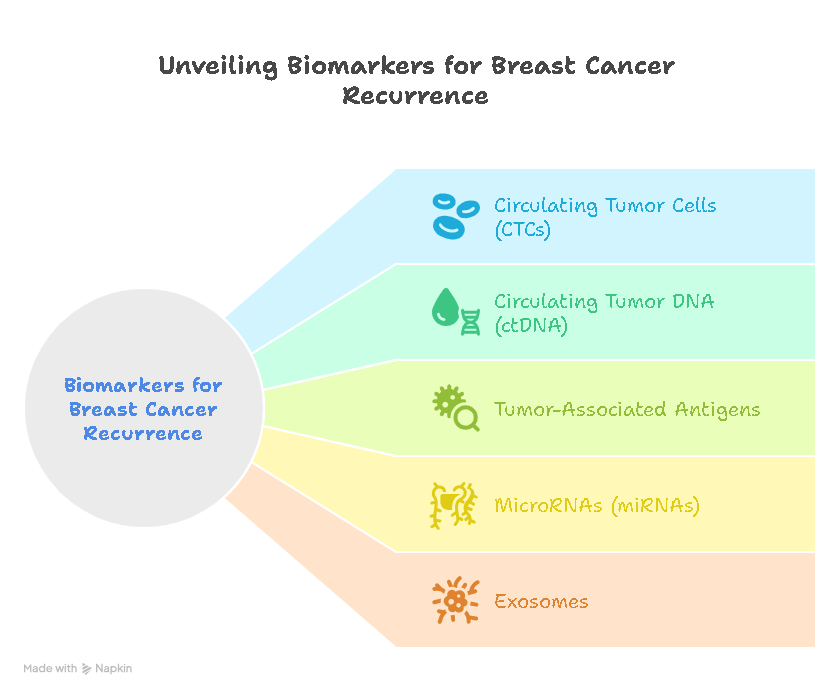Table of Contents:
- Introduction
- Understanding Hormones and Their Receptors
- Estrogen Receptors and Breast Cancer
- 3.1 The Connection between Estrogen and Breast Cancer
- 3.2 Hormone Receptor-Positive Breast Cancer
- Progesterone Receptors and Breast Cancer
- 4.1 Exploring Progesterone’s Impact on Breast Cancer
- 4.2 Hormone Therapies Targeting Progesterone Receptors
- The Complex Interplay of Hormones in Breast Cancer
- Diagnosis and Treatment Strategies
- Promising Research and Future Directions
- Conclusion

1. Introduction
Breast cancer continues to be a significant health concern affecting women worldwide. Understanding the intricate interplay between hormones and breast cancer has become a crucial aspect of cancer research. In this article, we delve into the role of two key hormones – estrogen and progesterone – and their receptors in breast cancer development, progression, and treatment.
2. Understanding Hormones and Their Receptors
Hormones are vital chemical messengers that regulate various bodily functions, including cell growth and development. In the context of breast cancer, two hormones – estrogen and progesterone – have garnered considerable attention due to their influence on breast tissue.
3. Estrogen Receptors and Breast Cancer
3.1 The Connection between Estrogen and Breast Cancer
Estrogen, often referred to as the “female hormone,” plays a crucial role in the development of breast tissue. However, excessive exposure to estrogen can lead to an increased risk of breast cancer. Estrogen receptors (ERs) are proteins present on the surface of cells that interact with estrogen molecules, promoting cell growth.
3.2 Hormone Receptor-Positive Breast Cancer
When breast cancer cells have an abundance of estrogen receptors, they are classified as hormone receptor-positive. This type of breast cancer often responds well to hormone therapies that target estrogen receptors, thereby inhibiting the growth and spread of cancer cells.
4. Progesterone Receptors and Breast Cancer
4.1 Exploring Progesterone’s Impact on Breast Cancer
Progesterone, another hormone involved in the menstrual cycle and pregnancy, also plays a role in breast tissue development. Progesterone receptors (PRs) are proteins that interact with progesterone, influencing cell growth and differentiation.
4.2 Hormone Therapies Targeting Progesterone Receptors
Research is ongoing to understand how progesterone receptors contribute to breast cancer. Hormone therapies targeting progesterone receptors are being explored as potential treatment options for specific breast cancer subtypes.
5. The Complex Interplay of Hormones in Breast Cancer
The relationship between hormones, their receptors, and breast cancer is complex. Both estrogen and progesterone receptors can impact cancer cell behavior. The interplay between these hormones and their receptors often varies between individuals, contributing to the diverse nature of breast cancer.
6. Diagnosis and Treatment Strategies
Accurate diagnosis of hormone receptor status is crucial for tailoring effective treatment plans. Hormone receptor testing helps determine the most suitable therapies, which may include hormone-based treatments, chemotherapy, targeted therapies, or surgery.
7. Promising Research and Future Directions
Ongoing research is shedding light on novel treatment approaches. Advances in understanding the molecular mechanisms of hormone receptor-positive breast cancer are paving the way for more personalized and effective therapies. Researchers are exploring innovative strategies to block hormone receptors’ activity and inhibit cancer growth.
In the intricate landscape of breast cancer, hormones and their receptors play a pivotal role in disease development, progression, and treatment. Estrogen and progesterone receptors offer valuable targets for therapeutic interventions, enabling healthcare professionals to design personalized strategies for patients. As research continues, a deeper understanding of the role of hormones in breast cancer holds the promise of improved outcomes and enhanced quality of life for individuals affected by this condition
Lifestyle Factors and Hormone Regulation
Beyond medical interventions, lifestyle factors also influence hormone regulation and breast cancer risk. Maintaining a healthy body weight, engaging in regular physical activity, and adopting a balanced diet rich in fruits, vegetables, and whole grains can help regulate hormone levels and reduce the risk of hormone-related cancers.
Hormone Replacement Therapy (HRT) and Breast Cancer
Hormone replacement therapy (HRT) is a treatment used to alleviate menopausal symptoms by supplementing declining hormone levels. However, long-term use of certain HRT formulations, particularly those containing both estrogen and progestin, has been associated with an increased risk of breast cancer. Women considering HRT should discuss potential risks and benefits with their healthcare providers.
Importance of Early Detection and Screening
Regular breast cancer screening, including mammography and clinical breast exams, remains critical for early detection. Detecting hormone receptor-positive tumors at an early stage enhances treatment success and improves overall outcomes. Early intervention allows for a wider range of treatment options and potentially less aggressive therapies.
Patient Empowerment and Advocacy
Empowering patients with knowledge about hormone receptor status and treatment options is vital. Patients should actively participate in treatment decisions and advocate for their well-being. Support networks, patient advocacy groups, and informational resources play a crucial role in guiding individuals through their breast cancer journey.
13. Addressing Myths and Misconceptions
The realm of hormones and breast cancer often gives rise to myths and misconceptions. It is essential to debunk these myths and provide accurate, evidence-based information to dispel fears and misinformation surrounding hormone-related breast cancer risks.
14. The Road Ahead: Integrative Approaches
An integrative approach that combines conventional medical treatments with complementary therapies, such as acupuncture, yoga, and mindfulness, can contribute to overall well-being during breast cancer treatment. These practices may help manage treatment side effects, reduce stress, and enhance emotional resilience.
15. Conclusion: Navigating the Hormone-Breast Cancer Nexus
The intricate relationship between hormones and breast cancer underscores the need for comprehensive research, effective treatments, and patient-centered care. As we continue to unravel the complexities of hormone receptors and their role in breast cancer, advancements in medical science and patient empowerment pave the way for improved outcomes and a brighter future for those affected by this disease.
In conclusion, understanding the role of estrogen and progesterone receptors in breast cancer is a critical step toward developing targeted therapies and personalized treatment plans. By addressing hormone regulation, early detection, lifestyle factors, and patient empowerment, we can make significant strides in reducing the impact of breast cancer on individuals and society as a whole. As research progresses, the synergy between medical advancements and patient advocacy promises to reshape the landscape of breast cancer care and foster a brighter horizon for all those affected.











Leave a Reply